
If we continually try to force a child to do what he is afraid to do, he will become more timid, and will use his brains and energy, not to explore the unknown, but to find ways to avoid the pressures we put on him. | John Holt Continue reading Don’t Try to Force a Child to Do What He Is Afraid to Do John Holt

A good educational system should have three purposes: it should provide all who want to learn with access to available resources at anytime in their lives; empower all who want to share what they know to find those who want to learn it from them; and finally, furnish all who want to present an issue to the public with the opportunity to make their … | Ivan Illich Continue reading A Good Educational System Ivan Illich

We are shut up in schools and college recitation rooms for ten or fifteen years, and come out at last with a bellyful of words and do not know a thing. | Ralph Waldo Emerson Continue reading Shut Up in Schools Ralph Waldo Emerson

Show me a Professor of Education who lectures, and I’ll show you a hypocrite who doesn’t read the research. | Donald Clarke Continue reading Show Me a Professor of Education Who Lectures Donald Clarke
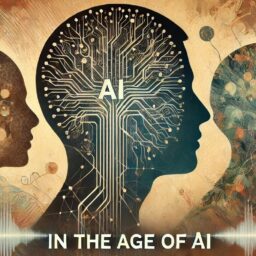
Close Pop-up All Episodes What is Education in the Age of AI? In this thought-provoking episode, Clive, Ron, and David explore how generative AI is transforming education. Clive emphasizes the need to rethink not just education about AI, but also how AI reshapes all areas of the curriculum. He calls for a broader approach that … Continue reading In the Age of AI #4: What Is Education? Thursday 10th April 2025


Don’t ask kids what they want to be when they grow up but what problems do they want to solve. This changes the conversation from who do I want to work for, to what do I need to learn to be able to do that. | Jaime Casap Continue reading Don’t Ask Kids What They Want to Be When They Grow Up Jaime Casap

We teachers – perhaps all human beings – are in the grip of an astonishing delusion. We think that we can take a picture, a structure, a working model of something, constructed in our minds out of long experience and familiarity, and by turning that model into a string of words, transplant it whole into the mind of someone else. Perhaps once in a … | John Holt Continue reading We Are in the Grip of an Astonishing Delusion John Holt

The problem is not people being uneducated. The problem is that people are educated just enough to believe what they have been taught, and not educated enough to question anything from what they have been taught. | Richard Feynman Continue reading The Problem Is Not People Being Uneducated Richard Feynman

A primary object should be the education of our youth in the science of government. In a republic, what species of knowledge can be equally important? And what duty more pressing than communicating it to those who are to be the future guardians of the liberties of the country? | George Washington Continue reading A Primary Object of Education Should Be the Science of Government George Washington

Our research shows that when students learn how to use talk to reason together, they become better at reasoning on their own. | Neil Mercer Continue reading Using Talk to Reason Together Neil Mercer

Deschooling Society by Ivan Illich, first published in 1971 and reissued in 2000, is a seminal critique of the modern education system. Illich argues that institutionalized schooling is counterproductive to genuine learning and perpetuates social inequalities. Here are the key points of his argument: 1. Critique of Institutionalized Education Illich contends that schools have become … Continue reading Deschooling Society by Ivan Illich (2000)
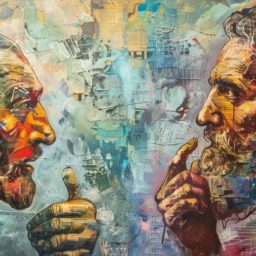
Chatbots and Genai in Knowledge Management From Mind to Information – the Role of AI in Knowledge Encoding Close Pop-up all posts in this chapter What’s the Vibe? Please be patient as this may take up to a minute to load… Close As AI increasingly shapes our world, we need to consider its effect on … Continue reading Artificial Intelligence and the Quest for Knowledge Exploring the parallels between Plato’s Phaedrus and the challenges of GenAI

Introduction: Conversational Learning The Power of Peer Learning Close Pop-up all posts in this chapter What’s the Vibe? Please be patient as this may take up to a minute to load… Close Traditional lectures often fail to engage students in real understanding. People need more than just information—they need to make sense of it through … Continue reading The Power of Peer Instruction Why explaining ideas to others leads to deeper learning

How Beliefs Shape Reasoning Discrediting People ** Close Pop-up all posts in this chapter What’s the Vibe? Please be patient as this may take up to a minute to load… Close Motivated reasoning is where we look for arguments in favor of conclusions we want to believe, regardless of the evidence. This is a primary … Continue reading Science Curiosity A desire to seek out and consume scientific information for pleasure
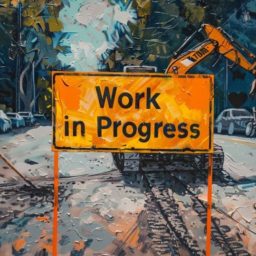
Turn-taking in Conversation Our Most Powerful Technology Is Conversation Close Pop-up all posts in this chapter What’s the Vibe? Please be patient as this may take up to a minute to load… Close Pask’s Conversation Theory, developed by British cybernetician Gordon Pask in the 1970s, is a conceptual and theoretical framework that explores how learning … Continue reading Conversation Theory ** Gordon Pask

Say So, If You Don’t Have an Opinion Owning Our Mistakes ** Close Pop-up all posts in this chapter What’s the Vibe? Please be patient as this may take up to a minute to load… Close Carpe diem is a Latin aphorism, usually translated as “seize the day” or “pluck the day [as it is … Continue reading Carpe Diem – Seize the Day Seize the day everyone
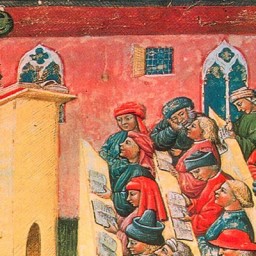
Dialogic Organization Development The Power of Team Huddles Close Pop-up all posts in this chapter What’s the Vibe? Please be patient as this may take up to a minute to load… Close Flipped teaching reverses, or “flips”, traditional in-class lectures and homework. Students watch the teacher’s prerecorded lecture at home, and in-class time is used … Continue reading Flipped Teaching Speech is a bad medium for communicating information – so watch lectures at home

It is often suggested that offering rewards is necessary to motivate people, particularly when it comes to sharing their knowledge. However, this strategy is ultimately ineffective and potentially harmful in the long run. Continue reading Punished by Rewards Loving what you do is a more powerful motivator than any goody
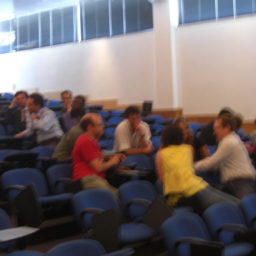
Knowledge Café: Refreshments Knowledge Cafés at Conferences Close Pop-up all posts in this chapter What’s the Vibe? Please be patient as this may take up to a minute to load… Close I would not advise it unless you have a choice, but Knowledge Cafés can be held in a lecture theatre. As you can see … Continue reading Knowledge Café: Lecture Theatre Cafés can even be run in lecture theatres
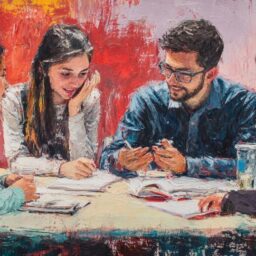
Become a Conversation Architect Rediscovering Rhetoric Close Pop-up all posts in this chapter What’s the Vibe? Please be patient as this may take up to a minute to load… Close In education, considerable emphasis is placed on numeracy and literacy — understanding and working with numbers and reading and writing. But what about the capacity … Continue reading Oracy The ability to express oneself in and understand spoken language












